Advertisement
Community power programs are launching in N.H. Could they help stop climate change?
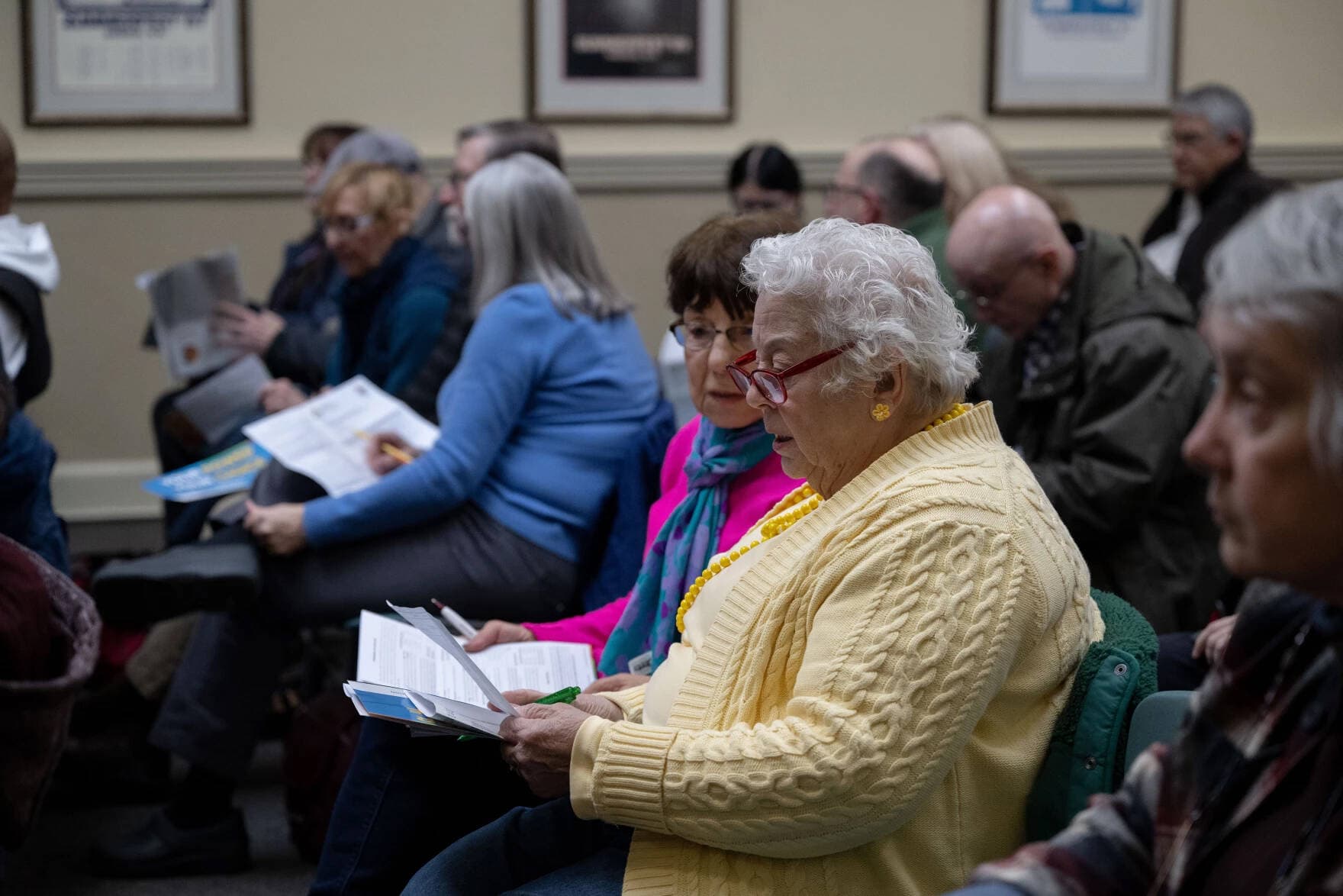
Keene was one of the first cities in New Hampshire to adopt commitments to 100% clean energy in 2019. But then came the challenge of following through.
“The city of Keene, we have a limited number of levers that we can use to effect change,” said Mari Brunner, a senior planner with the city’s community development department.
The city has made a variety of efforts to shift its electricity use in public buildings to greener sources, like putting up solar panels attached to the city’s wastewater treatment facility. But, Brunner says, when it comes to all the electricity used in private homes and businesses, it’s a different story.
“We do not have the authority to tell them ‘you must use renewable energy,’ or ‘you have to install solar.’ We can't do that,” she said.
What they can do now, for the first time, is sign residents up to buy electricity through the city that is cheaper and more renewable at the same time. It’s called community power.
Across New England, communities are rethinking traditional utility companies to save money and as part of the solution to climate change. In a variety of ways, they’re trying to shift power into the hands of ratepayers. In Maine, voters will weigh in this year on whether the state should create a new electric utility owned by consumers. And Massachusetts and Rhode Island have programs similar to the ones starting up in New Hampshire.
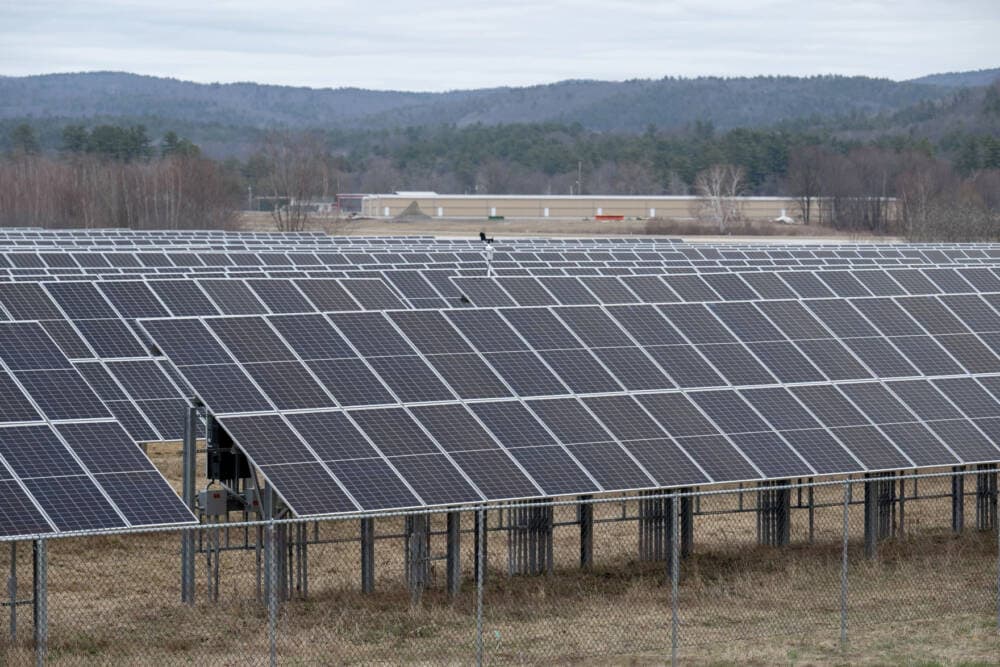
This spring, the first fourteen communities in New Hampshire are launching community power programs, including Keene.
“For us, it really was a game changer,” Brunner said.
How community power works
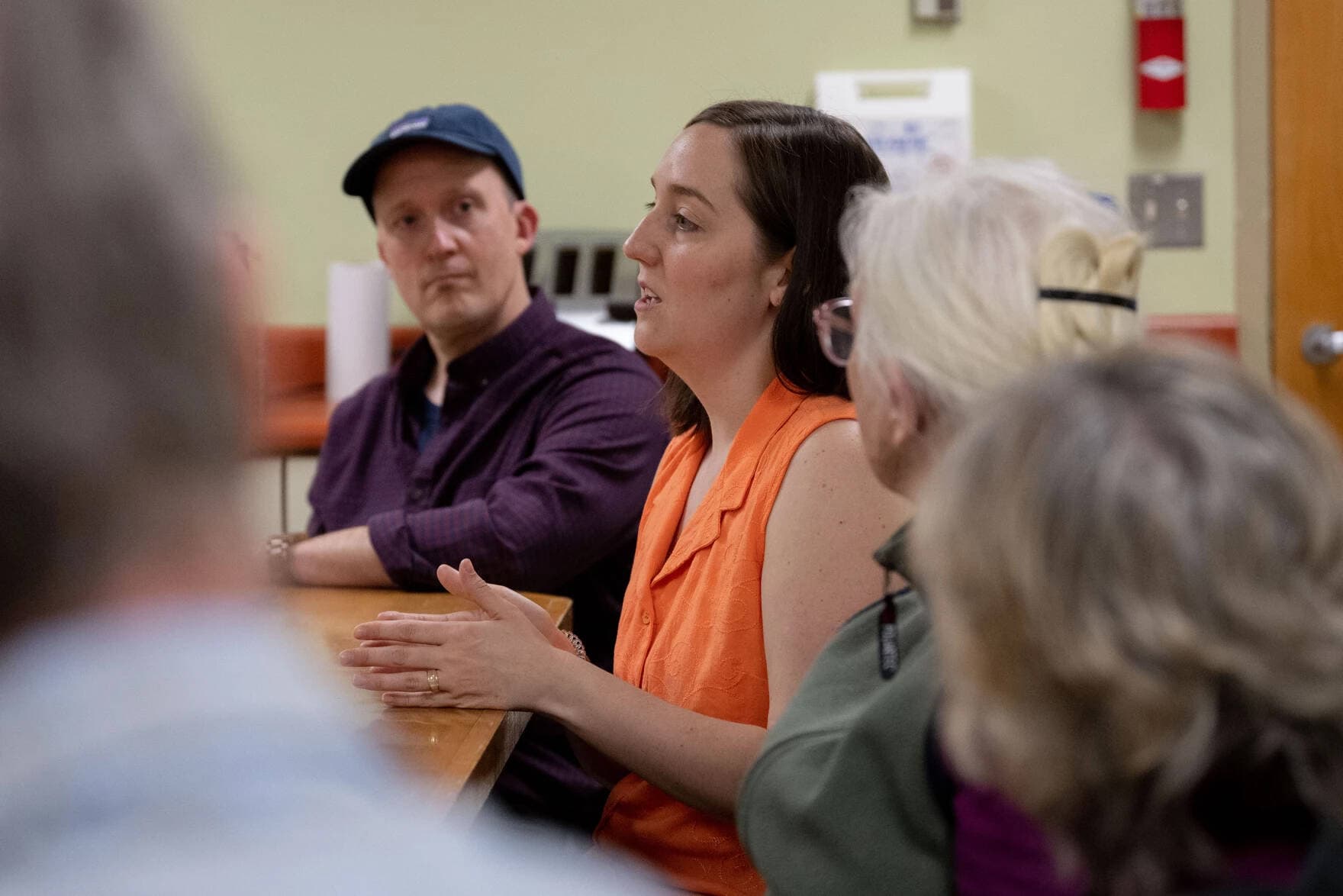
Usually, a utility company buys electricity from generators, and delivers it to customers through their poles and wires.
You could think of it like a soft serve ice cream machine.
The utility company takes care of the machine, fixes it when it breaks down, and makes sure it’s big enough to handle all the ice cream people want. Traditionally, they handle purchasing the ice cream too.
But under community power, a municipality starts buying the ice cream, and choosing the flavors.
The utility company still manages the machine – maintains the poles and wires, and charges customers for delivering electricity – but on customers’ bills, the “supply” charge will start to come from the community power program.
In New Hampshire, municipalities are starting opt-out programs, meaning almost everyone will be enrolled automatically in the community power program when it starts. Residents can switch back to the utility’s default electricity supply at any time, or take their business to a competitive supplier of electricity.
Advertisement
But community power programs are planning to launch with lower rates than New Hampshire’s utilities, and they can offer new kinds of electricity plans, giving people the choice to buy up to 100% renewable energy.
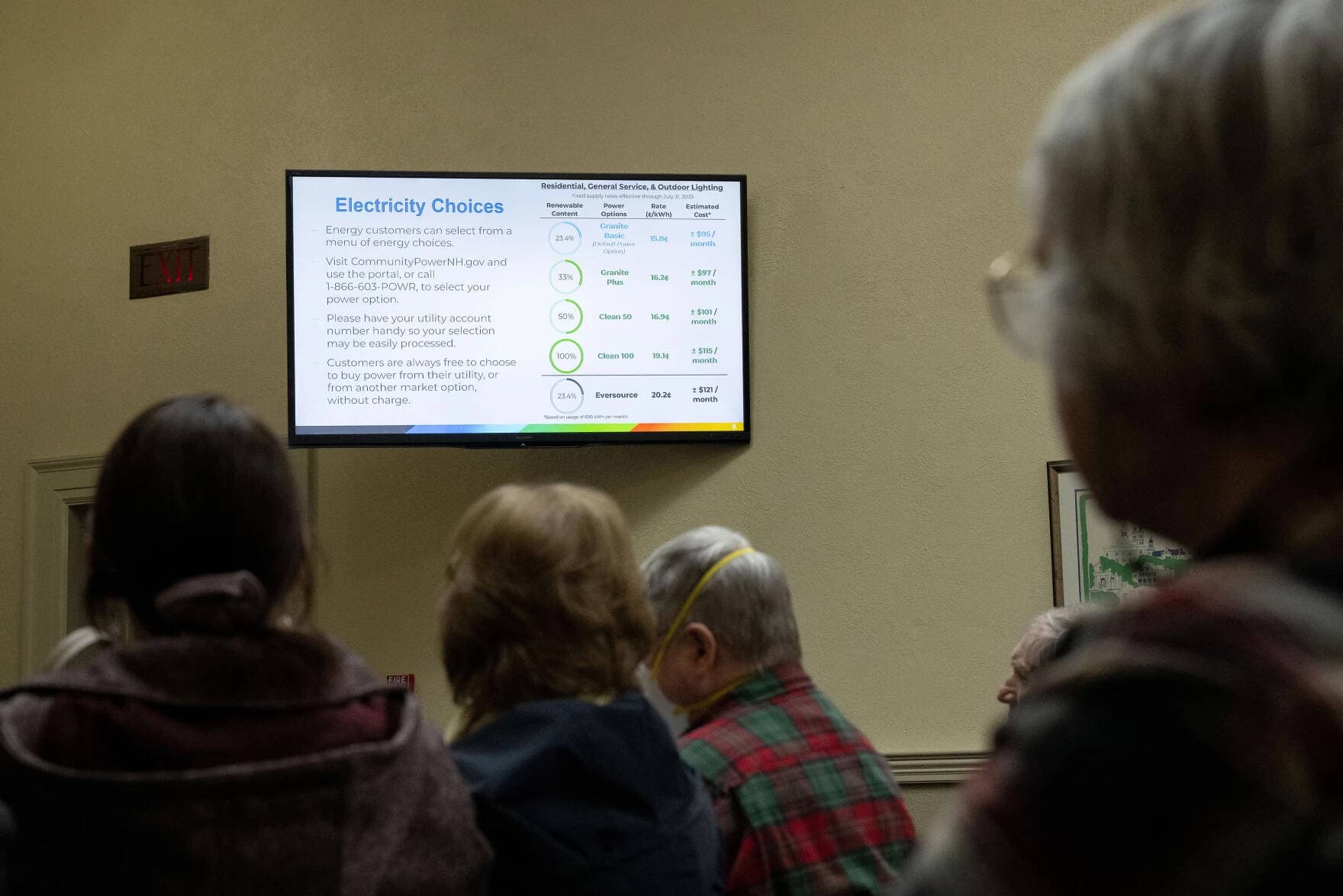
“It's designed to help accelerate the cost effective development and integration of new clean energy resources … distributed renewable generation and storage, and large-scale clean energy, and renewable generation like offshore wind,” said Clifton Below, Lebanon’s assistant mayor and one of the founders of the Community Power Coalition of New Hampshire.
Below has been working on the idea of community power since the 1970s, when he was with the Upper Valley Energy Coalition.
“We were trying to look at reviving the small hydroelectric dams on the Mascoma River and sort of raising the question, ‘Why aren't we using these local renewable resources as part of our power supply?’ And so we posited that we should have community power,” he said.
The Community Power Coalition currently has 30 communities signed up to launch programs together. Those programs will work together to buy power for customers and develop local projects.
Other communities in the state are using consultants like Standard Power and Good Energy, which has 11 communities signed up to launch community power programs in 2023.
How community power could help the climate
Cleaning up the grid and making it more resilient is key to stopping climate change. And Below says giving towns the ability to purchase their own power can spur demand for renewable generation, like solar and wind.
Community power programs plan to use renewable energy credits, or credits that can be bought and sold alongside the power a renewable generator produces, to provide the renewable energy in their electricity plans. The money from selling those credits is meant to help renewable developers make projects more economically viable.
Studies suggest renewable energy credits, also known as “RECs,” might not actually help develop new renewable energy generation.
But Sam Evans-Brown, executive director of Clean Energy New Hampshire, says that “misses the bigger picture.”
“What happens when you buy a renewable energy credit is you put money in the pocket of a renewable energy developer,” he said.
Those developers can then use that money to bring new projects online, particularly in New England, Evans-Brown said, where states have binding renewable portfolio standards that mandate the increased use of renewable energy.
In the future, community power programs could work outside of the REC system to contract directly with specific renewable project developments for their electricity, or even help build new projects, as programs in California are doing.
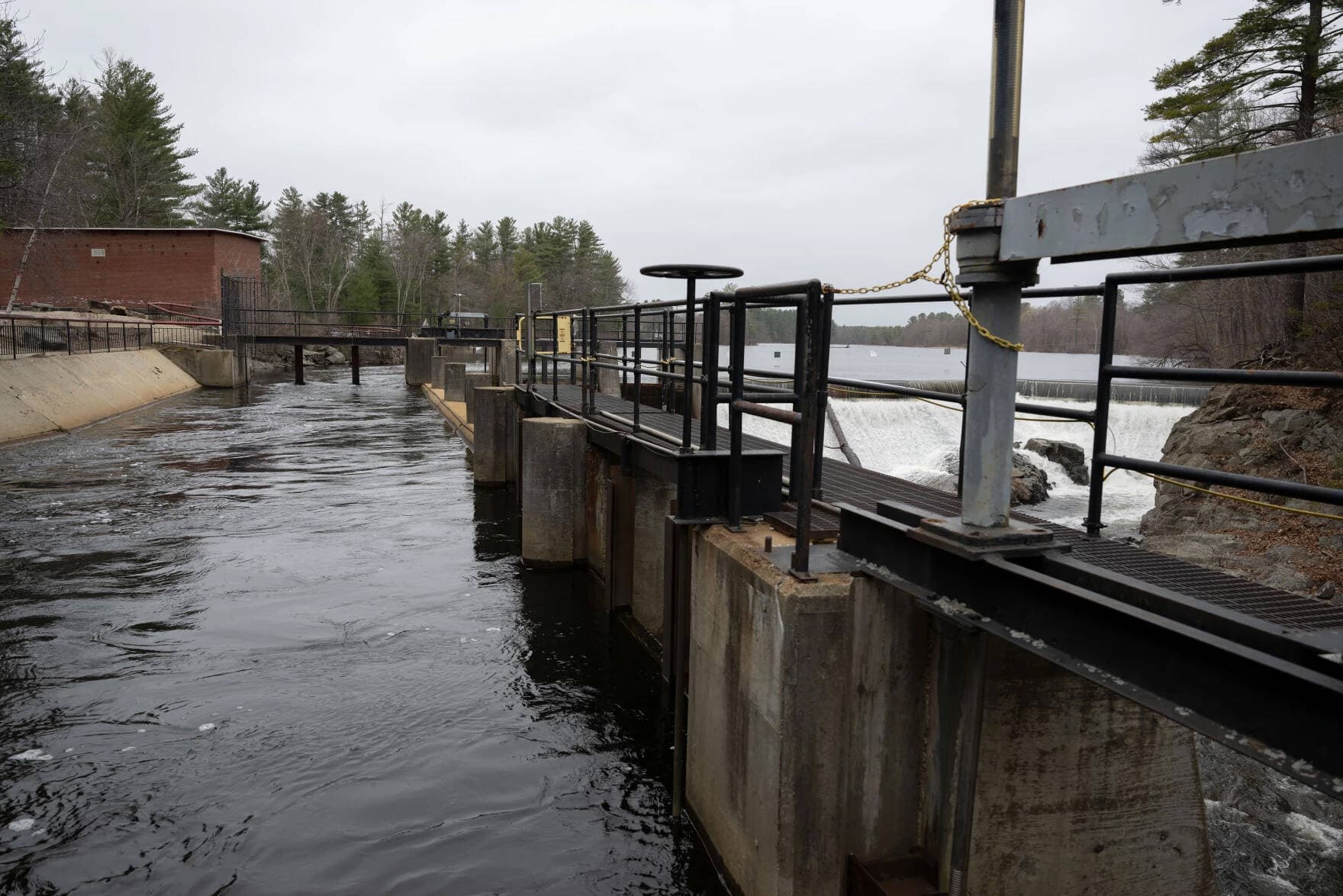
Below said that’s what the Community Power Coalition wants to do eventually, but doing so in the most effective way would require some changes in New Hampshire law.
Towns working with Standard Power and Good Energy can also lean on the expertise of those consultants to start local projects, said Emily Manns, a community power consultant with Standard Power.
“Building local projects is extremely viable right now,” she said. “But there is a knowledge gap or an expertise gap.”
Community power programs could also offer innovative services to customers that could help balance out demand on the grid, like charging different rates for using electricity at different times, Below said. Those kinds of programs could reduce the need for new transmission lines and help manage the new kinds of electric needs coming online, as more people switch to electric transportation and heating.
Legacy utility companies have struggled to share the data required to make some of those programs possible. Last week, the town of Harrisville filed a complaint with the Public Utilities Commission, saying Eversource was not sharing the data needed by the community power program to serve customers who net meter, meaning they sell some of the electricity they generate through rooftop solar, for example, back onto the grid.
But beyond the technical benefits, community power has another, more on-the ground effect: getting people more involved in their energy.
“We’re sort of opening up the hood on how the electric system works,” Below said. “As community members learn more about how our electric system works and what the options are for change, we're empowering community leaders to be more active participants in driving that change.”
Power for everyone
On a cloudy Tuesday night in Nashua, residents packed into a room in City Hall, many holding community power fliers they’d gotten in the mail. Celeste Bergeron came to the meeting to learn more.
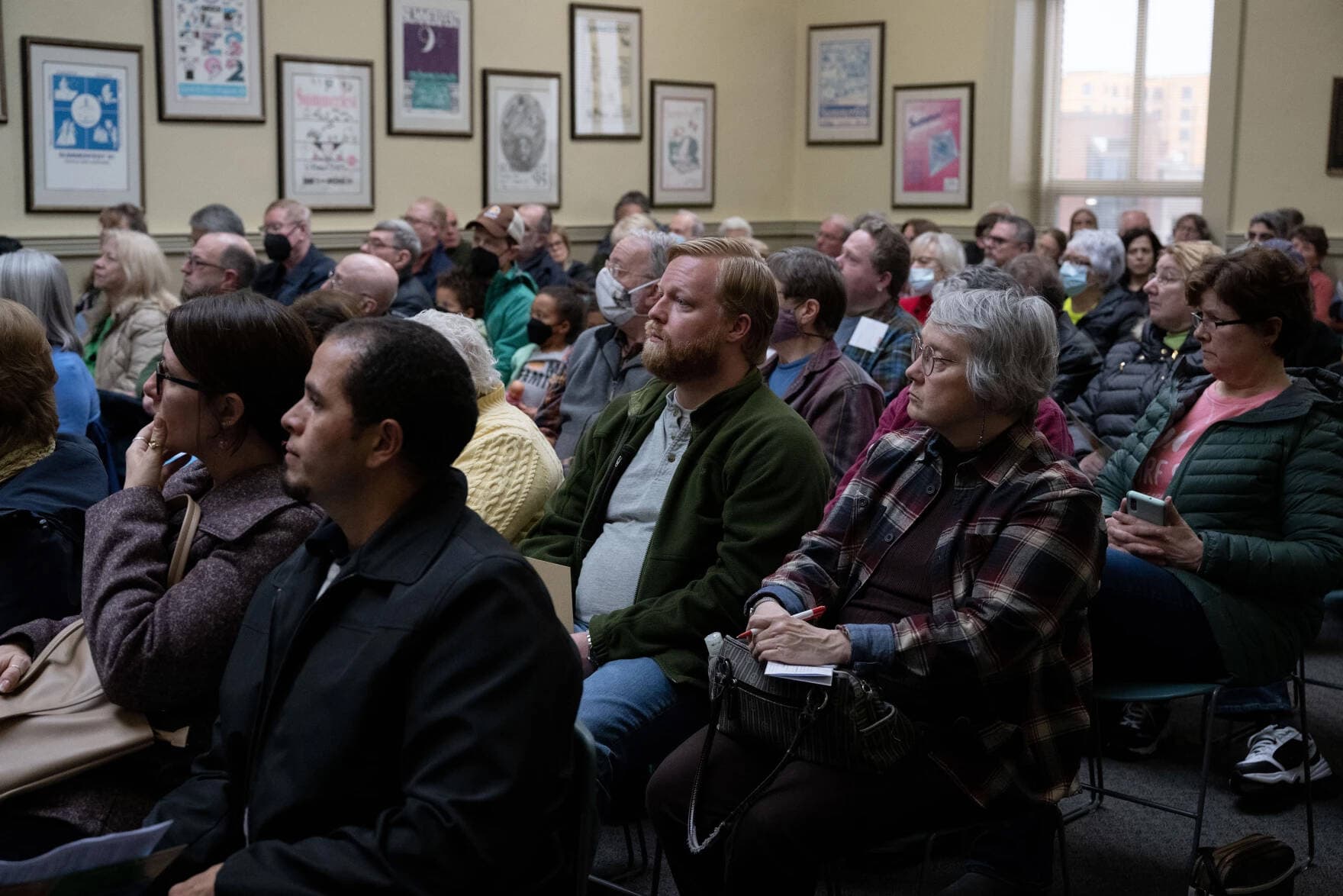
“I'm retired and so it's very important that I keep my fixed budget the way it is. So right now that's more my concern,” she said. “However, I do want renewable energy as much as we can, so I'm liking that Nashua is headed that way.”
Community power programs are already expecting to save people money. The state’s traditional investor-owned utilities purchase energy twice a year, but community power programs can purchase electricity on a more flexible schedule, or sign longer-term contracts with power generators.
When they start up, some people in New Hampshire’s community power programs will be saving as much as $50 a month.
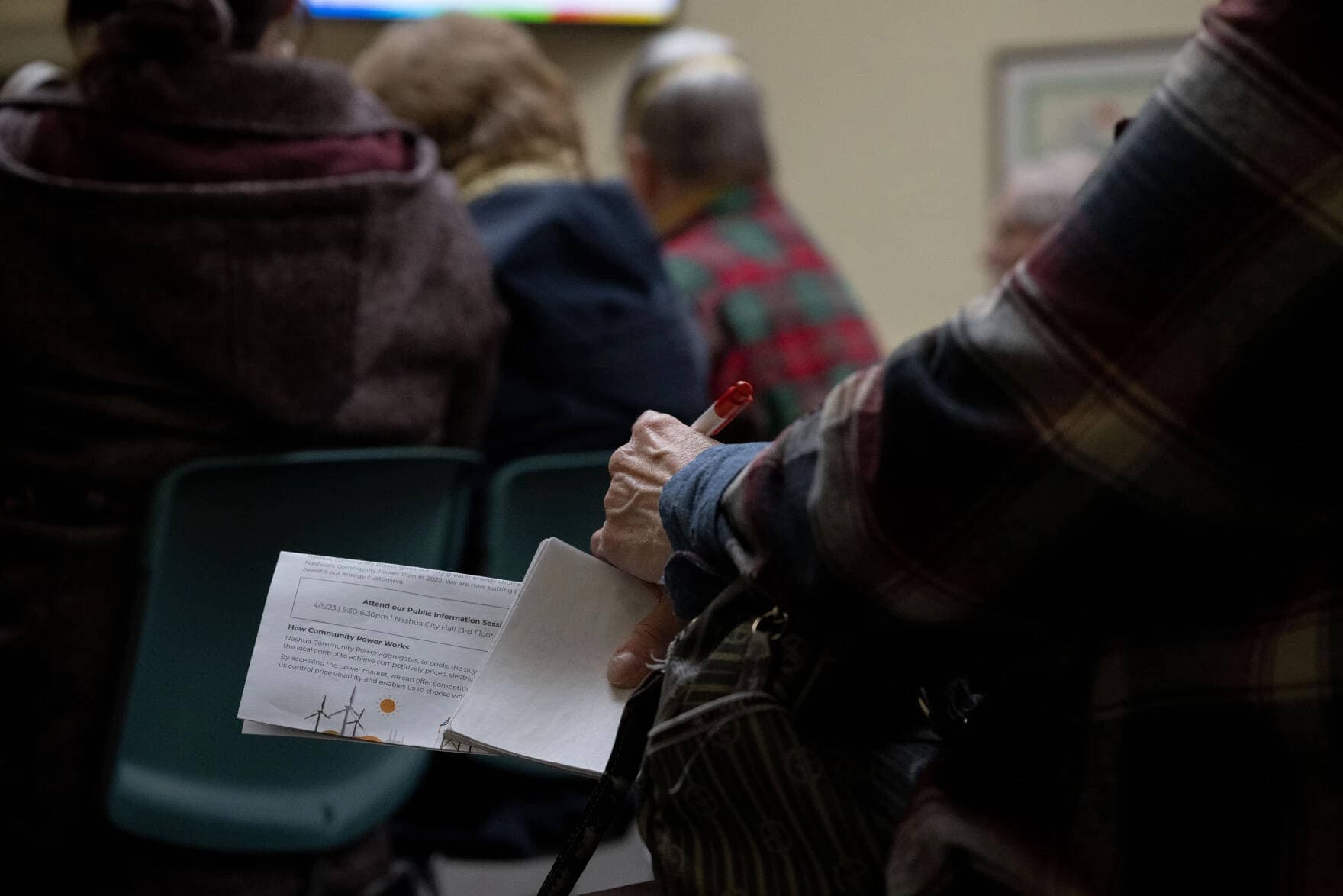
Nashua’s energy manager, Doria Brown, says the program is exciting for a lot of reasons – and it comes at the right time. Many people have seen their energy bills double, or even triple, in the past few months.
“I think rate relief really comes first right now,” she said. “And as the project evolves, I think more people will be thinking about: ‘Where is my energy coming from? How can a renewable energy resource maybe even provide more rate relief for me if it's located in my community?’”
And Brown says, importantly, it’s also a lot easier than some of the other ways Granite Staters can directly benefit from the clean energy transition. Residents don’t need to do lots of research, sign up for a group net metering project, or make big investments in solar panels.
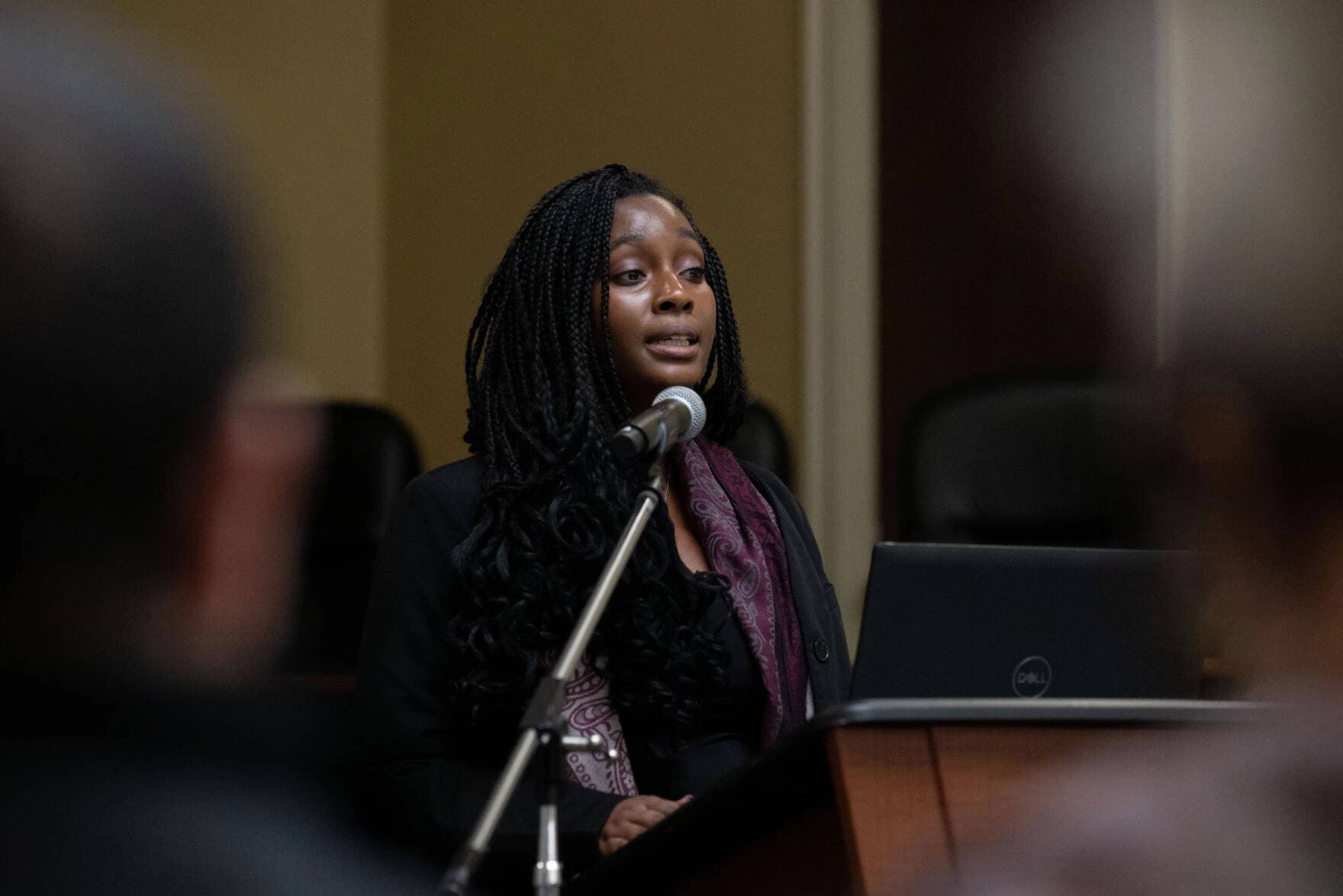
“With community power, it's the default rate for electricity right now. Everybody has access to it. When they move to Nashua, everybody gets information about it. And if renewables expand through this program, everybody will have access,” she said.
This story is a production of the New England News Collaborative. It was originally published by New Hampshire Public Radio, and is part of the collaborative's Earth Week series.
This segment aired on April 19, 2023. The audio for this segment is not available.